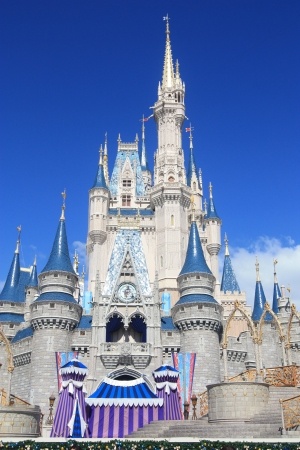Accidents Do Happen At Theme Parks and Resorts
August 14, 2015 | Category: Defective Products | Share"In May we published a blog titled Amusement Rides - Are They Worth The Risk? The blog covered reported accidents in 2014. This summer we are already seeing accidents at theme parks not only involving injuries, but also deaths. This is an important subject to regularly review," said Fort Myers Accident Attorney, Randall Spivey of Spivey Law Firm, Personal Injury Attorneys, P.A.
 According to the International Association of Amusement Parks and Attractions (IAAPA) estimate, there are 375 million visitors to North American fixed-site amusement parks each year. The Association believes these parks and attractions provide safe entertainment and recreation for most visitors; however, there are accidents reported every year, some are fatal.
According to the International Association of Amusement Parks and Attractions (IAAPA) estimate, there are 375 million visitors to North American fixed-site amusement parks each year. The Association believes these parks and attractions provide safe entertainment and recreation for most visitors; however, there are accidents reported every year, some are fatal.
- A 3-year old boy drowned Tuesday July 14, 2015 in a pool at Disney’s Art of Animation Resort. A spokesperson from the Orange County Sheriff's office reported that the boy was visiting with his parents from out of town when he became separated from them. He was later found in the bottom of the pool.
- At a Waterville, Maine amusement park, three children were injured on the “Dragon Wagon” roller coaster when it malfunctioned and came apart on the evening of June 12, 2015.
- Less than 24 hours after the "Dragon Wagon" accident in Waterville, Maine a woman was injured in a swing ride accident at the same Head of Falls park.
The Smithsonian Magazine reported in May 2013 the results of the first study to look at national rates of amusement park ride injuries to children. The study showed that a total of 92,885 children in the U.S. under the age of 18 wound up at emergency rooms between 1990 to 2010 after unfortunate encounters with a Ferris wheel, merry-go-round or other ride. Looking at the figures on an annual basis shows that on average 4,400 children are injured each year on amusement rides. 10 percent of the injuries were on roller coasters and 4 percent on bumper cars. Far more injuries were on merry-go-rounds at 20.9 percent.
What types of injuries have been sustained at amusement parks?
Amusement park accidents include the following injuries:
- head, neck, and back injuries from bumper car rides or from being whipped around on spinning rides and roller coasters
- falling or being thrown from a ride
- traumatic brain injury from G-forces and stresses imposed on the brain by extremely rapid speeds or from detached objects hitting the rider's head
- brain aneurysms from roller coasters or other fast rides
- lacerations, broken bones, torn ligaments
- drowning on water slides, "lazy river" rides, or other water rides.
According to the CPSC (Consumer Product Safety Commission), there are several leading contributors to amusement park injuries and fatalities. Most injuries occur due to:
- Mechanical failure of the ride. Mechanical failure could be caused by a manufacturing defect or the park's failure to maintain the ride.
- Improper operation of the ride. For example, the operator may become distracted and abruptly stop the ride or incorrectly latch a seatbelt as a result of inadequate training.
- Passenger misuse or failure to follow instructions. For example, a rider intentionally rocks a car, stands up mid-ride, unlatches safety restraints, sits improperly, or holds a child above the safety restraint.
- Inherent nature of the ride. An amusement park ride may still cause an injury simply because of the nature of the ride itself.
Is there any regulation of amusement parks?
NBC News reported in July 2014 that government regulation of an amusement park ride depends on whether the ride is categorized as fixed-site or mobile. Fixed-site rides are permanent fixtures and do not travel from one location to another. Mobile rides travel from site to site, such as those you find at county fairs and carnivals. The CPSC regulates mobile amusement park rides. However, the CPSC has no authority to regulate fixed-site rides. Oversight of those rides is left to a patchwork of state and local authorities.
What is the legal liability of the park operator?
Amusement park operators are responsible for the actions of their employees. Should an employee be negligent or careless, then any injuries suffered as a result of the negligence of the employee would be park owner's responsibility.
There are some amusement park accidents which are caused by defective rides, or components of rides. Also, poor maintenance and inspection, sometimes by unqualified people, would cause amusement ride accidents.
"Reviewing the information surrounding an amusement park or resort accident is best handled by a qualified accident attorney," says Fort Myers Personal Injury Attorney, Randall Spivey of Spivey Law Firm, Personal Injury Attorneys, P.A.
Southwest Florida Accident Attorney, Randall L. Spivey is a Board Certified Trial Attorney – the highest recognition for competence bestowed by the Florida Bar and a distinction earned by just one (1%) percent of Florida attorneys. He has handled over 2,000 personal injury and wrongful death cases throughout Florida. For a free and confidential consultation to discuss your legal rights, contact the Spivey Law Firm, Personal Injury Attorneys, P.A., in Lee County at 239.337.7483 or toll free at 1.888.477.4839,or by email to Randall@SpiveyLaw.com. Visit SpiveyLaw.com for more information. You can contact Spivey Law Firm, Personal Injury Attorneys, P.A.in Charlotte County at 941.764.7748 and in Collier County 239.793.7748.

